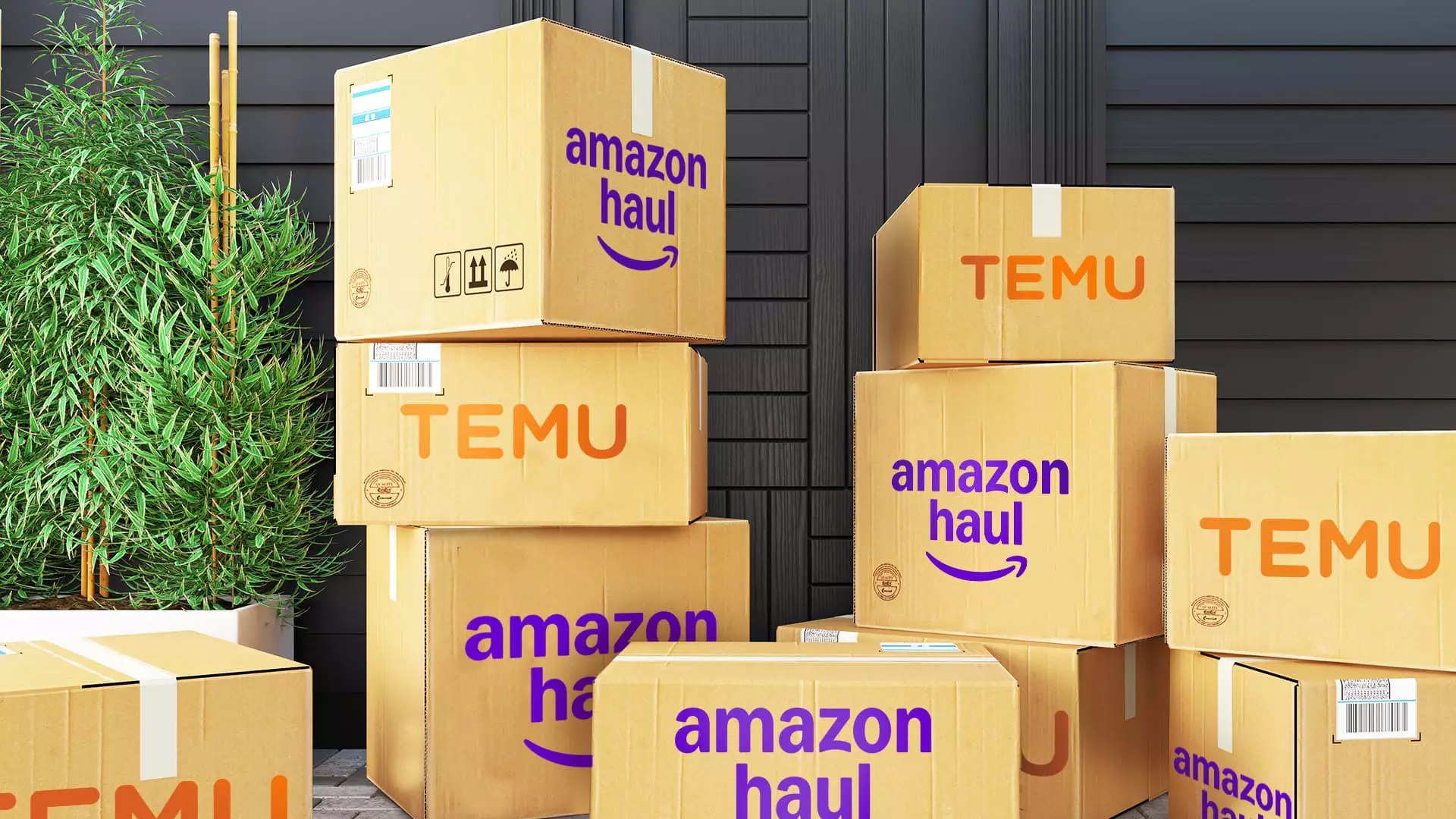In recent news, Amazon has embarked on a bold initiative to expand its discount shopping platform, known as Haul, well beyond the confines of the United States. This decision is largely motivated by the need to compete with rising e-commerce giants such as Temu and Shein, which have succeeded on the back of aggressive pricing and a vast selection of products. As echoed by insiders familiar with Amazon’s strategic aspirations, the rollout of Haul in Europe is set to commence later this year, signifying a critical step forward in the company’s global e-commerce vision.
Launched in November 2022, Haul presents itself as a unique avenue for consumers seeking affordable alternatives. With the majority of products priced at $20 or less, the platform emphasizes an engaging shopping experience that amalgamates both affordability and convenience. Accessible only through Amazon’s mobile app, Haul showcases an assortment of items, from beauty essentials to home goods, echoing the low-cost allure of its Asian competitors like Temu and Shein. The objective is clear: meet the needs of price-sensitive consumers while capturing a significant share of the burgeoning discount shopping market.
Recent job postings serve as a testament to Amazon’s determination to establish Haul as a significant player on a global scale. The recruitment for positions such as software development engineers and senior product managers hints at a structured plan for an international launch. Speculatively speaking, creating a robust digital infrastructure is paramount to ensure seamless customer experiences across differing marketplaces. These positions are not just about filling vacancies; they signal a commitment from Amazon’s leadership to innovate and adapt in a fiercely competitive environment.
However, the expansion into Europe is not without its challenges. The region maintains strong sustainability standards which Amazon must address as it scales Haul. While the company has made strides by using recyclable materials for packaging in Europe, the inherent nature of discount e-commerce often leads to reliance on plastic. Balancing operational efficiency with environmental concerns will be critical as Amazon approaches the European market—neglecting these issues could lead to backlash from both consumers and regulators.
To further fuel Haul’s growth, Amazon appears to be employing strategies borrowed from its anchor e-commerce model. Recently, it began integrating sponsored products into search results within the Haul platform, allowing sellers to promote their items more prominently. This method not only enhances product visibility but also positions Amazon to tap into the lucrative advertising market, which saw revenues surpassing $56 billion in 2023. Such diversification of revenue streams can significantly bolster Haul’s financial viability while offering consumers a tailored shopping experience.
A notable aspect of Haul’s inventory is its reliance on products sourced from Chinese suppliers. This strategy raises important questions, especially in light of increasing scrutiny surrounding trade practices with China. Recent developments regarding the de minimis rule—which allows duty-free shipments of low-value goods—highlight the potential regulatory hurdles that Amazon could face. In light of these changes, the company must navigate complex legislative environments while sustaining its relationship with Chinese manufacturers, which could become increasingly challenging.
During a recent interview, Amazon’s CEO Andy Jassy addressed these evolving challenges and reaffirmed the company’s confidence in Haul’s growth trajectory. Despite competition from established players, Jassy emphasized that Amazon’s organizational capabilities and adaptive strategies position it well to meet the demands of modern consumers. As Haul continues its beta phase in the U.S., the expectation is that ongoing refinements and additions will further strengthen its appeal.
The road ahead for Amazon’s Haul is rife with both opportunity and uncertainty. As the company gears up for an international rollout, it must skillfully wield its resources to navigate the competitive landscape, regulatory challenges, and consumer preferences. The commitment to low prices and convenience must remain central to its strategy. While the expansion into Europe seems to be a well-considered move, its success will ultimately depend on Amazon’s ability to innovate, adapt, and engage with a customer base that is becoming increasingly discerning and sustainability-conscious.

